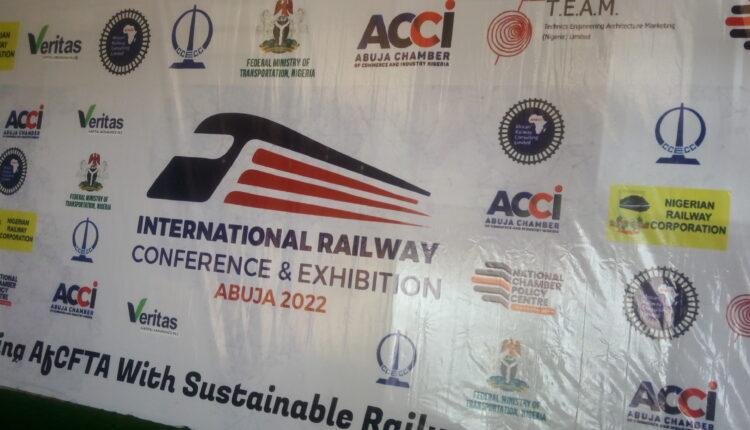African governments urged to deepen commitment to developing railway systems
|
Getting your Trinity Audio player ready...
|
By Anthony Maliki
Governments of African countries have been urged to deepen their collaboration and commitment in developing railway systems by addressing issues of financing, injection of institutional or private investor’s fund.
This has to be contemplated either in form of direct foreign or focal investment on Public Private Partnership (PPP) basis or through concessionary or commercial loans.
The suggestions were part of the communique at the end of the International Railway Conference organized by the Abuja Chamber of Commerce and Industry (ACCI) with collaboration with the Federal Ministry of Transportation in Abuja with the theme: “powering AfCFTA with sustainable railway development.”
According to the document, beyond building infrastructure, governments must invest in capacity-building and promote knowledge transfer for rail workers and technicians.
It also noted that railway infrastructure managers needed to adopt international best practices in managing facilities in order to achieve profitability of investments and sustainability.
The communique also said railway authorities must analyze risks and employ technology in monitoring tracks and maintaining facilities and government policies should focus on creating enabling environment to attract more private sector investment in railway systems.
On contractual arrangements, the communique implored African governments to set up provisions that promote knowledge transfer for local technicians and when developing rail projects, leaders must engage all stakeholders before implementation.

Besides, in the course of the conference, some resolutions were deduced including among others, insecurity remaining a major threat to rail infrastructure development in Africa which discourages private investors to the sector, technical know-how amongst local engineers across the continent are insufficient.
Others are railroads can greatly decrease transportation costs, especially for businesses in local areas, thereby making farming production for export markets profitable, makes transportation of heavy materials become much cheaper while also encouraging people to travel further and this meant people could move to different areas to find work and the success of the AfCFTA can be amplified through a network of highspeed railway systems on the continent.
Others are, many African nations have now recognized the importance of an effective rail systems and are undertaken various steps to develop rail systems and finance remains one of the major hurdles in railway development in Africa.


